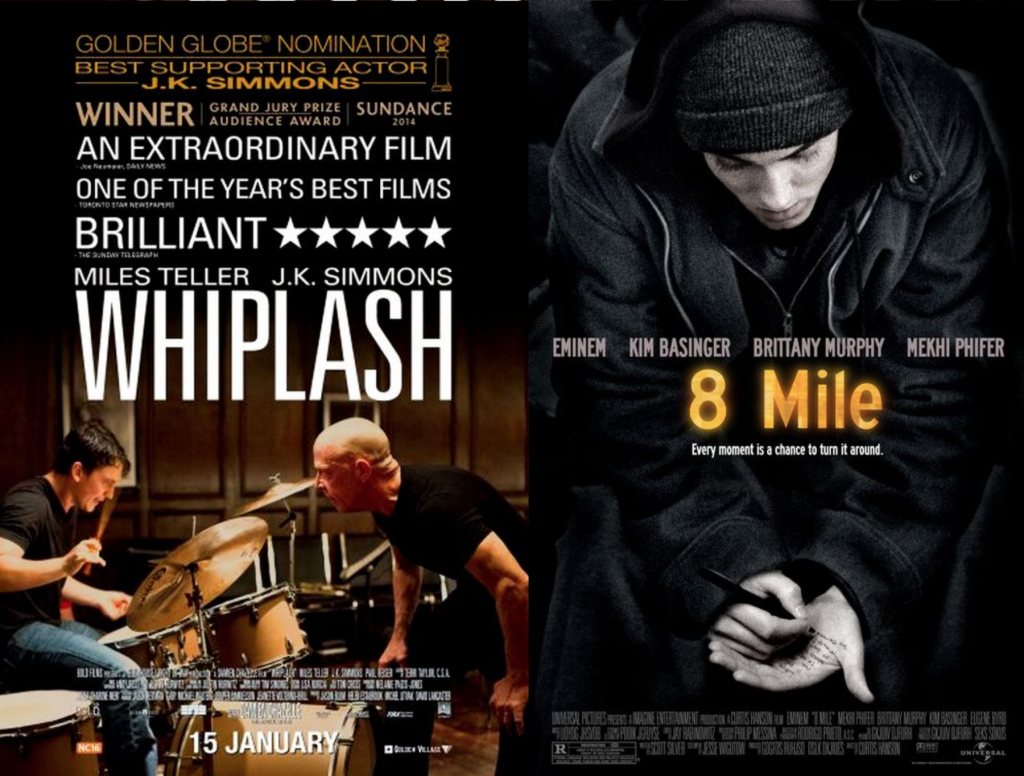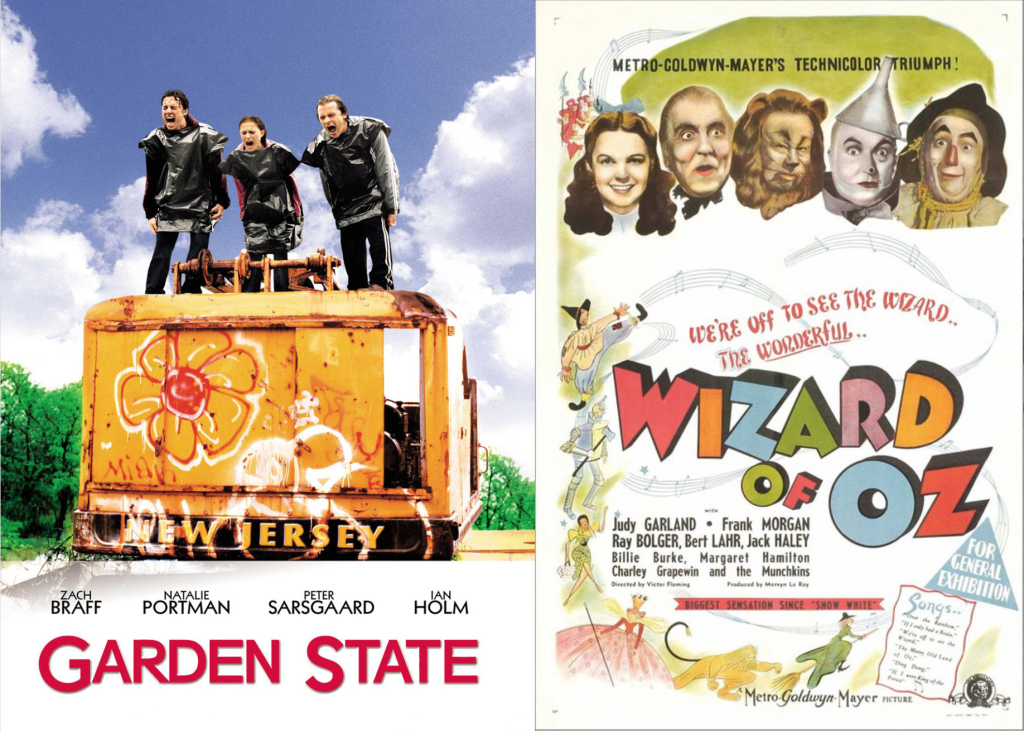Genre: Biopic/Drama
Premise: The unbelievable fallout after Larry Hillblom, a self-made billionaire, died in a plane crash, and it was revealed he’d used numerous Third World Asian countries as his own personal pedophilia playground.
About: This script finished on the low end of last year’s Black List. You could say this is Matt Portenoy’s breakthrough screenplay, although he did pen a segment on the much maligned Farrelly Brothers movie, Movie 43.
Writer: Matt Portenoy
Details: 125 pages
As you guys know, I don’t beep for biopics. I find the majority of them tedious, predictable, and lame. I think they’re the genre that requires the LEAST amount of skill to pull off, since you don’t even need to structure them. The outline’s already typed up for you on Wikipedia. All you have to do is add dialogue. This accounts for 90% of the biopics I read.
There are a few exceptions. The first is when the writer tries something different. Instead of using internet sites to plot their story, they take a unique point of view, or do something interesting with the timeline, or play around with convention – anything so that the result is unpredictable. Steve Jobs, The Fighter, The Social Network. Even a movie like Julia and Julia. All of these qualify.
The next exception is if the writer is actually a good writer and not hacking their way through a glorified obituary. Again, you don’t need to be a great screenwriter to write a biopic because structure doesn’t matter as much. You can literally write a bunch of “greatest hits” scenes and if someone really wants to make a movie about that person, they might buy your script.
But when a good writer comes in and approaches the biopic in the same way that one approaches a spec script – by trying to tell an amazing story – you end up with some good material. The King’s Speech, The Imitation Game, Braveheart are all examples of this.
Our final category is the truly fucked up people who have had really bizarre lives. These are hard to screw up because the curiosity-factor is so high. If you want to know what these movies are, check Leonardo DiCaprio’s IMDB page. They’re exclusively what he seeks out. Catch Me if You Can, The Wolf of Wall Street, The Aviator. But it also includes movies like Man on The Moon, A Beautiful Mind, and the eternally in development hell but sure to arrive at some point, Freddy Mercury story.
Larry Hillblom lands squarely in that final category. If you want to learn about someone who lived a weird life, google this dude. And that leads us to a very important screenwriting lesson for biopic writers – find the weird lives that nobody knows about. The competition is too fierce for the super famous names. People have heard of Howard Hughes. People have heard of Andy Kaufman. But until I picked up today’s script, I’d never heard of Larry Hillblom.
Our story starts with Larry, CEO and creator of one of the largest shipping companies in the world, DHL, opening up a refrigerator that is filled top to bottom with ONLY GRAPEFRUITS. Newsflash. Larry is a fucking weirdo.
Like a lot of weird things this man does, he’s been on a month long “only eat grapefruits” diet. If Larry’s doing this for his health, he probably shouldn’t have pulled his best Buddy Holly impression and hopped on a plane that, 30 minutes later, would crash and kill him. I hear death is unhealthy for your heart.
Cut to Nick Waechter and Pete Donnici, the now acting presidents of DHL. While Donnici is more of a suit, Waechter was Larry’s best friend. So even though he just got a big promotion, he’s hurting.
Meanwhile, halfway across the world in a small Asian country called Saipan where Larry spent the bulk of his time, lawyer David Lujan gets a visit from a local prostitute who claims that her son was fathered by Larry. She wants some of that sweet billion dollar pie.
And thus begins one of the strangest estate battles in history. Waechter and Donnici fly to Saipan, where they learn that Larry essentially owned the entire island (including a theme park that Larry built). And he used that power, along with his millions, to seek out 14-15 year old local virgins to have sex with.
Attempting to protect a billion dollar business from both losing its capital AND having its name tarnished, Waechter and Donnici do everything in their power to eradicate this potential heir from taking their fortune. This includes destroying all DNA from Larry and even bribing the country’s president to change the laws so that ridiculous quotas must be met to prove someone’s your child.
The problem is, more and more of Larry’s secretly fathered children keep showing up, meaning more and more bugs need to be squashed. At a certain point, not even DHL’s millions can save them, resulting in one hell of a settlement for a group of women who were, up until that point, living on a few dollars a day.
I always tell you guys to find a new angle. Give us something the average person wouldn’t have thought of. You’re a writer. That’s your job.
So if I told you to write a biopic about Larry Hillblom, what would you do? What Portenoy did was he said, “Fuck the biopic. What if we focused on what happened AFTER the “bio” part instead?”
Once he had that angle, he didn’t need to do anything fancy. He picked a well-known story template – underdog takes on the establishment – added a slice of Erin Brokovich to it, where we have this tiny island lawyer going up against a big corporation (Scriptshadow Tip: Everyone loves underdogs!), and then he just told his story.
And like any good story, it has twists and turns, high stakes (if this case gets out, DHL is forever linked to pedophilia), an evil villain who will do anything to prevent getting beaten. It really delivers (heh heh).
And it’s basic stuff guys. At the heart of any good story is someone who wants something badly, and somebody else (or something else) who’s trying to prevent them from getting it. If both of those characters are compelling, and your plot keeps evolving in unpredictable ways, you’ll write a strong script.
There were a couple of weaknesses though. By not spending any time with Larry, we didn’t get to see what was, supposedly, a batshit crazy dude. This guy owned a Delorean. He was a hypochondriac (supposedly why he only had sex with virgins). He was in a previous plane crash which led to extensive reconstructive surgery. He hated taxes and spent millions to make sure he’d only give the government the bare minimum. He was an adrenaline junky. He was the only billionaire in the world who cut coupons.
I don’t know if you do it through flashbacks but it seems like the script is missing out by not seeing more of this guy. When you’ve got a talking turtle, you don’t hide him in the back room.
Another thing I want to discuss is the “half-commit.” This is when writers don’t commit to something all the way.
Here, Portenoy gives our hero, David, a temper. The problem is, it reeks of “I’m doing this to make the character more interesting, even though it has nothing to do with the rest of the story.”
Character traits only work if they play into the story somehow. For example, if David punches the lead counsel and it ends up costing them a key witness, then the temper flaw ends up mattering. But if it’s just something that randomly comes up once in awhile, you’ve probably only added it because screenwriting books told you to do so.
If you’re not going to commit to something all the way, it’s better to get rid of it completely.
Beyond these problems, I really Liked Unt. Larry Hillblom. It’s a good story about a weird guy that gets you thinking about all sorts of stuff these big corporations are hiding. Check it out if you’ve got the time.
[ ] What the hell did I just read?
[ ] wasn’t for me
[xx] worth the read
[ ] impressive
[ ] genius
What I learned: ORGANIC EXPOSITION – This is the only type of exposition you should be writing. It refers to hiding exposition inside moments where it’s organic that the information would be revealed. For example, when exposition about DHL needs to be given, Portenoy doesn’t place Donnici and Waechter in a room and have the two give an impromptu breakdown of the company. “They can’t mess with us. We started this company in 1980 and built it to 20,000 employees.” “Not to mention we were around before Fed Ex.” “Last year alone we brought in a half a billion in revenue.” That’s inorganic. Instead, Portenoy hides this information inside a eulogy, where it would make sense that someone would talk about the company that Larry started: “By founding DHL, before Fed-Ex, before AOL, before “Hands Across America” or “We Are The World,” Larry Hillblom shrunk the earth…” Waechter would go on to tell us key information about Larry in the eulogy as well. This is what organic exposition looks like.
Okay, a big reminder that your Scriptshadow Tournament scripts are due in 15 days. And that got me thinking. Is there anything you can do to massively improve a script in 15 days?
At first I thought, no. But then I was reading a consult script the other day and the writer, while having a good concept, was not a good scene-writer. Had he known how to add drama to scenes, his script would’ve been 100 times better. And since scenes don’t take long to write, this is the answer to our question. Go through all your scenes and ask if there’s a version of the scene you can write that’s more entertaining.
How do you write a “more entertaining” scene? Make sure the basics are in place. A good scene is like a mini-story. So add GSU (goal, stakes, urgency). Once you have the basics, add CONFLICT or SUSPENSE or MYSTERY or A REVERSAL. Essentially, come up with a SITUATION. The last thing you want is characters sitting around pushing the plot along or conveying character backstory. “Hey, didn’t you used to live down on Drury Lane?” “I did, but then I moved to Rosewood.” “Ah yes, I remember. You were a great basketball player back then.” “I gave that up.” “Oh?” “Broke my foot in college.” MY GOD, KILL ME NOW!!!!
You want to create SCENES. Scenes are LITTLE STORIES. They are not package containers so you can bore us to death with two characters droning on about their lives. So let’s take the above scene. And honestly, if you thought writing that scene was a good idea, you’re probably screwed anyway. But for a challenge, let’s say you wanted to make that scene more entertaining.
A simple option is to add conflict. Make it so these two characters don’t like each other. They’re at the same party, in a room with friends, the friends leave, and these two are awkwardly left alone. They have a similar conversation, but it’s now LACED WITH TENSION.
“You still live down on Drury Lane?” “Moved to Rosewood.” (long awkward pause) “Ballin?” “Nah man. Better things to do.” “Heard it was cuz you didn’t make the team.” (dagger stares are traded) “What about you? You still livin with your mom?” Not a lot better, but a little more entertaining, right? All we had to do was add conflict.
Improving scenes is fast and easy. Just go through each one and ask, “Is there a way for me to make this scene more entertaining?”
Feel free to share your scenes for feedback in the comments. Upvote your favorite scene. Whoever gets the most votes will very likely make the tournament. Enjoy!
Note: There will be NO REVIEW next Friday as I will be out of town. So use that time to work on your screenplay!
Genre: Crime-Thriller
Logline (from writer): When a Minnesota homeowner exploits the state’s self-defense law to get away with the murder of two teenage girls, their parents start looking for various hitmen to break into his fortified safehouse and kill him.
Why you should read: “Castle Doctrine” is a topsy-turvy “Fargo”-esque small-town thriller that plays around with some of the genre conventions (who’s the hitman, and who’s the prey) while at the same time respecting the classic noir formula.
It takes place in 2016 and shows modern Minnesota in the grip of high-speed Internet and social media. Its “richest man in town” character may have made his fortune in startups while its “vengeful mother” archetype may run an Etsy crafting shop out of her house and hire her hitmen online. It even may take place in the nice little township I was born and raised in, and not in the usual backwoods sort of place.
But it portrays (unflinchingly, I hope) the downward spiral of a community destroyed by a particular kind of crime where EVERYBODY knows who the killer is, but NO ONE has the guts (or the means) to do something about it. It chronicles the last days of several individuals who live out their lives thinking of either murder or survival and not much else. Its plot driver is the pendulum of retribution, the one you draw back in the first act, let fly in the second and watch it bring about a 24-hour bacchanalia of blood and mayhem in the violence-steeped third. — It doesn’t get any more noir than that.
Writer: Alexander Bashkirov
Details: 109 pages (this is an updated draft that used notes from the Scriptshadow community)
Another script I’ve consulted on wins Saturday. Congrats to Alexander! I went back to my original notes on Castle Doctrine and this was my initial observation: “You used Fargo as a reference in your e-mail and I think that’s appropriate. There’s an unpredictable twisty-turny quality to this script that echoes what made that film so incredible. But twisty-turny narratives are a lot like bucking bulls – very hard to control. If you don’t have a good grip, you can easily get thrown 20 feet from the ring.”
When I originally read this, I felt Alexander got thrown from the ring. There were too many threads going on and while it looks easy to do that from the outside, it’s actually one of the hardest things to pull off in screenwriting. Let’s see if Alexander has fixed this problem with his latest draft (and with the help of you guys!).
Wydell is one of those psycho gun nuts who bleeding heart liberals and Europeans point to to bolster their argument that America is crazy. But to be fair, Wydell’s way over the top. I mean, he’s got every gun known to man and he’s built himself a CIA-level safe room in his basement.
I don’t have a single friend with a safe room.
Yet.
When Wydell hears that teenagers are breaking into houses around town, he posts on a website that he’ll be out of town for awhile, when in actuality, he’s very much in town, in his house, waiting to spring a trap. His plan works. The teenagers, two girls, come to rob his place, and because in Minnesota you’re allowed to shoot anyone who enters your home uninvited, Wydell does just that, killing them both.
The story then shifts to the parents of each victim. There’s Gillian, a single mom with a clothing business she runs out of her home, and Leo, a single father and the richest man in town. Both of them want revenge.
At first, they do their own thing. Gillian does some internet searching to find a hitman, and Leo hires some local thugs to do the job. The thugs run into the crazy that is Wydell, who easily kills them, so Leo decides to spring for half of Gillian’s hitman fee.
The “hitman,” it turns out, is actually a hitwoman named Nell. Nell has killed over 50 people, most of them in Mexico. You’d think that after playing for the cartels, this bitch would be unstoppable. But she hasn’t met the insanity that is Wydell yet. Get ready for the showdown of the century, folks.
Not that it’s fair to compare an amateur script to an Oscar winner, but since Alexander brought Fargo up as inspiration, I thought it’d be fun to do just that!
The big difference I noticed between Castle Doctrine and Fargo was that one sets up its story in a single scene, while the other takes the bulk of its second act to do so.
In Fargo’s first scene, our main character hires the kidnappers to pretend-kidnap his wife. From there, we’re off to the races with the kidnapping, the accidental murder, and what becomes the bulk of the movie, the fallout – Jerry desperately trying to cover his ass.
With Castle Doctrine, we start with the event (two teenagers getting killed), a court case, then the bulk of the second act turns into the setup – Gillian and Leo preparing to kill Wydell.
I don’t know what to think about this because we do have a GOAL driving the story – our characters planning to kill someone. So it’s not like we don’t have something to look forward to. But it did feel like a lot of screenplay real estate to cover something that probably could’ve been covered a lot faster.
Both scripts also have dual-protagonists. In Fargo, it’s Jerry (the man who hired people to pretend-kidnap his wife) and Marge (the cop who investigates the murder). In Castle Doctrine, we have Gillian and Leo, the two parents of the slain teenagers.
Here’s my issue. In Fargo, there was a symbiotic relationship between the two leads. One was trying to get away from the other. In Castle Doctrine, we have a repetitive relationship between the two leads. They’re both attempting to do the exact same thing.
This, in part, contributed to the first issue. Since TWO people are attempting to try and kill Wydell, it meant TWICE the set-up time.
While noticing these differences, I reminded myself that these are different movies and therefore require different story choices. You can’t copy and paste choices from one movie to the next because, even if they worked, you’d be rewriting the same story.
However, since I wasn’t as engaged as I wanted to be with Castle Doctrine, I kept looking for reasons why.
The more I thought about it, the more I went back to the “repetitive” thing. Something felt off about TWO people attempting to do the exact same thing. It’s kind of like having two MVP candidates on the same baseball team. Neither wins because they end up splitting the votes.
Then something hit me. I didn’t like Leo. His choices are surface-level (throw money at the problem), whereas Gillian makes scarves for a living. Now that’s a character. The pleasant little mother who makes scarves has to figure out how to hire a hitman and kill a man. Something about her being a woman also makes her decisions more compelling (the gun-happy macho Leo doesn’t have to think twice about putting a bullet in Wydell’s head – but for Gillian, it’s a much tougher moral decision).
If you added this component to her character that she’s the poster child for anti-violence and anti-gun, and she decides to use violence and guns to kill a man? You don’t need any other characters to tell that story. You have a strong enough character to carry the whole shebang.
I believe Alexander included two parents because there were two victims involved. To ignore one of the parents would’ve seemed odd. Hence the repetition. But maybe Leo commits suicide after the murder, leaving only this nice suburban mother to deal with the problem. That would draw a huge actress to play that part – I’m sure of it – and you wouldn’t have to reel in this extensive ensemble to tell your story.
Then again, I’m not convinced that’s the movie Alexander wants to write. Either way, I’d like to hear your takes. Simplify it? Keep it the same? Did you like Leo? Am I off here? This is one of the tougher scripts I’ve reviewed on the site. Usually I know exactly what’s wrong with something. But Castle Doctrine’s got me baffled.
Script link (new draft): Castle Doctrine
[ ] What the hell did I just read?
[x] wasn’t for me
[ ] worth the read
[ ] impressive
[ ] genius
What I learned: Make it so your main character has to make tough moral decisions that conflict with what they believe in. If you have a character who doesn’t believe in guns realize that the only way to solve the problem is with guns, you’ve got yourself a compelling character.
One of the common issues I run into when I consult for screenwriters is when writers pursue the most boring version of their concept. One might say that they’ve chosen the “indie” version of their idea.
Now, there’s nothing wrong with writing an indie film, but you have to realize that the indie world operates by a different set of rules. It’s a sector of the industry that rewards writers who also direct their films, or who, at the very least, put all the pieces together and make the movie themselves.
Also keep in mind that very few agents and managers – the people you’ll be attempting to win over with your spec – will be excited by indie scripts. Even the most popular indie films – the ones that win Oscars – make little-to-no money. True, they can work as a calling card for bigger work, which you’d think would make those same agents happy, but this goes back to point number 1 — the people who often get rewarded for those breakout films are the directors and the producers – not the writers.
Before I go on, I want to point out that, yes, there are outliers – movies like Juno. And there are ways to navigate this process – befriend a director who shares your sensibilities so you have someone to direct your script when it’s finished.
But if you’re hoping to get noticed on your writing alone, passion-project indie screenplays are not the way to go. You want to find something bigger than can appeal to a larger audience.
Which brings us to today’s post: There is often a bigger version of your idea out there that you’re ignoring, one that will allow you to explore all the characters and themes and ideas you wanted to explore in your indie script, yet do it inside a package that Hollywood celebrates.
All this requires is an open mind, a little creativity, and some compromise. What you’re looking for is a “comp,” a movie-type that’s done well before in the marketplace, and to see if your small idea can be expanded into that bigger package. Today I’ll be giving you five indie movies and their big-time Hollywood counterparts so you can see what the writer could’ve done had they wanted to write a bigger more Hollywood-friendly movie. Let’s get started.
Example Number 1 – “In The Valley of Elah” vs. “A Few Good Men.”
Most of you probably don’t remember “In The Valley of Elah,” but it’s a wonderful example of what I’m talking about because the person who wrote it was coming off an Oscar (Paul Haggis for “Crash”). Consider that for a second. You have an OSCAR WINNER who couldn’t get anybody to watch his movie and you’re going to attempt to do the same thing that he did (write a boring little indie movie).
In The Valley of Elah follows a father whose soldier son dies under mysterious circumstances in battle. He starts digging and investigating the murder. The movie is a downbeat (note: “downbeat” is never commercial) exploration of loss, although it does have an active main character and a fairly strong narrative thrust. In the end, however, it was too indie. There wasn’t enough of a hook to get people to see the film.
A Few Good Men takes on a similar topic. A soldier has died under mysterious circumstances and people start investigating it. Here’s the difference. The script is centered around a giant theatrical court case, allowing for movie stars (Tom Cruise) to play big lawyers. Also, the more sensationalized investigation leads to bigger twists and turns, and the film has a way bigger villain (played by Jack Nicholson: “You can’t handle the truth!”) that allows the court scenes to shine.
I want you to take note here that a huge factor in A Few Good Men being more marketable is that court-case films had established themselves as 100+ million dollar grossers. The writers were playing inside of a pre-packaged blueprint that Hollywood could market. In The Valley of Elah had no “comp” that would indicate people would show up for it. So it shouldn’t be surprising that no one did.
Example Number 2 – “All is Lost” vs. “Life of Pie”
I want to make clear that I liked All is Lost just as much as I liked Life of Pi. But this article isn’t about the quality of the movie. It’s about how to execute a concept in a way that’s going to give you the most bang for your buck as a screenwriter. Now you might say, “Wait a second, Carson. All is Lost cost 10 million dollars to produce. Lie of Pi cost 150 million dollars. How can you compare them?”
Um, here’s how. As a screenwriter, YOU DON’T HAVE TO WORRY ABOUT BUDGET. It doesn’t cost you a dime to write a big-budget film. And since the bigger idea is much more likely to get attention than the tiny one, I’ll let you decide which one is smarter to write.
All is Lost has a fairly solid setup. A man is stuck on a raft in a giant ocean with no idea how he’s going to survive. Fighting for one’s survival against all odds is usually compelling to watch. But like a lot of indie concepts, it’s too damn small. We’re on a raft, all alone, with an old dude for 90 of the 100 pages. That’s why, despite the quality of this film, nobody saw it.
Contrast this with Life of Pi, which took the same idea and made a couple of key changes. 1) IT TURNED IT INTO AN ADVENTURE. This wasn’t just about nuts-and-bolts survival. There were battles with flying fishes, the exploration of a spooky potentially “alive” island, and of course the constant “friend or foe” battle with the other passenger on this tiny boat, a tiger.
Which leads us to 2) A STRANGE ATTRACTOR. You’ll hear commenters talk about this in the comments from time to time. By adding a STRANGE ATTRACTOR to your script, you can quickly turn it from a garden variety idea into something exciting and fresh. The strange attractor in Life of Pi was the tiger who shared the boat with our hero. I didn’t see Robert Redford with no tiger.
You saw this with the recently reviewed Unicorn Store as well. That script could’ve been about a girl forced to move back in with her parents who attempts to find her first boyfriend (the most indie of all indie premises). But by adding the strange attractor that was this unicorn, it became something a lot more intriguing.
Example #3 – “Whiplash” vs. “8 Mile”
I know a lot of people liked Whiplash, but let’s not ignore the fact that, outside of hardcore cinephiles, nobody saw it. Why? Because it was too indie of an idea. There were basically two characters in the entire movie. I can’t remember anyone else. I’m all for keeping the character count low when the concept demands it (Cloverfield Lane only had 3 characters, but that was because the movie took place in a bunker after the apocalypse). But when it makes sense that more people should be in the movie and they aren’t, something feels off.
I bring this up because it’s a very “indie” way to approach an idea. It’s too minimalistic to gain any traction from a mainstream audience. In contrast, 8 Mile keyed in on a tried and true Hollywood formula – the underdog “nobody gave him a chance” musician success story. Whereas Whiplash kept its scenes inside small bare rooms, 8 Mile watched its character’s success lead to bigger and bigger venues, more and more popularity, and used a classic Hollywood climax strategy, the big final competition.
One thing you may be noticing with the examples I’ve used so far is this concept of “bigger.” In every instance, the scope of the Hollywood version expands out to cover a larger swath of story real estate.
Example #4 – “Before Sunrise” vs. “Titanic”
Love stories are hard to market from the outset. We are no longer in the era of “Love Story,” which made the modern-day equivalent of 700 million dollars. The only love stories that get made these days are are the ones born out of the latest young-love author, whether that be Nicholas Sparks or John Green. Yet love stories are a common theme in a lot of indie scripts I read, so I want to give you a tip on how to big-time them.
Before Sunrise and Before Sunset are extremely well-written films. But they arrived at a time when Sundance buzz dictated which indies broke out into the mainstream, and even then, these films barely made any money. Why? Because the whole movie was two people walking and talking. Yes, the dialogue was amazing, and yes, both characters were compelling. But one of the sinking traits of indie scripts is that they’re so small, there isn’t enough variety to create “you have to go see this” buzz. It’s more of a quiet intimate experience you keep to yourself. Note to aspiring screenwriters: Hollywood hates that shit.
An awesome way to big-time a love story is to place it in a situation that’s bigger than the characters. A real-life historic event helps. And the more popular, the better. This now makes the love story AN EVENT, which satisfies one of the key requirements of getting butts in seats: The story feels IMPORTANT to the audience-member. We’re seeing this with the upcoming Brad Pitt film, Allied (which I reviewed in my newsletter and loved), which follows a couple of spies who fall in love during World War 2.
Example 5 – “Garden State” vs. “The Wizard of Oz.”
Garden State is a unique example in that it’s one of the most successful indie films that isn’t really about something. Now a big reason for its success was Zach Braff’s directing style, which composed its shots and used tripods when nobody else at the time was doing so in the indie world (side tip: If you want to stand out, do the exact opposite of whatever the current trend is). But even with all its accolades, it didn’t make anybody money. I think the main producer is still in court trying to get the money back that he invested.
This is obviously the biggest stretch of all my examples, but when you pay closer attention, you’ll see how a little creativity can result in a much bigger and more Hollywood-friendly idea. Garden State is essentially a suburban adventure film. Our characters are led through a series of wacky locations (a Home Depot store, a house at the foot of a bottomless pit) while encountering a series of strange characters.
That’s exactly the same setup as The Wizard of Oz – the one difference being that we’re in a magical unknown land as opposed to suburbia. We’re exploring a lot of similar themes here, a lot of similar concepts. The difference is that the second idea allows us to explore things that have never been seen on film before.
And that’s a good point to end this article on. One of the reasons indie scripts don’t do well is that they’re covering the mundane – the everyday stuff we already experience in our own lives. Movies need to give us a reason to show up – and often that reason is by giving us an idea or a world we’ve never seen before.
In conclusion, does this mean you shouldn’t write an indie script? Of course not. All I’m trying to do here is educate you. You can do whatever you want with the information. What I don’t like is stubborn writers who send out these flat ideas that aren’t big enough to catch anyone’s interest and then they complain that the industry is rigged. No. You’re just writing boring scripts. By big-timing your idea, you give yourself the best shot at success.
Genre: Horror
Premise: An immature teenage girl must protect her younger brother when their babysitter becomes infected by something in the woods.
About: This script finished on last year’s Blood List. Zachary Donohue and Lauren Thompson are best known for their 2013 low-budget horror film, The Den. If you haven’t seen it, check it out. It’s not bad! That film got Donohue a writing job on one of the more high profile new shows, Outcast, Walking Dead’s Robert Kirkman possession show.
Writers: Lauren Thompson & Zachary Donohue
Details: 116 pages – 7/29/14 draft
One thing I like to do when I can’t choose a script to review is pick a ONE PAGE SHOWDOWN between two scripts. Read the first page of each. Whoever’s better? That’s who I pick, baby.
Since readers are hyper-critical in the early-going, and since most seasoned producers will give up on you after a single page if they think it sucks, page-battles are a nice way to see if you offer more than your competition. Go ahead and grab a recent sale spec that’s in the same genre as yours, and compare the first pages. See how you stack up!
I’ll explain to you why The Becoming won today’s battle, and maybe it’ll help you understand what you’re up against when a reader starts picking apart your page 1. But first, let’s break down the plot of Becoming.
13 year-old Madi Chapman has spent the majority of her life taking care of her 7 year-old deaf brother, Tuck. But Madi’s finally reached that age that all of humanity dreads: 13. Which means she’s now interested in… DUH DUH DUHHHHHH-HHHH……. BOYS!
When Madi’s mischievous friend, Hannah, tells Madi she’s got the hot and older Brandt brothers lined up for them, Jeff, 16, and Adam, 15, taking care of Tuck all of a sudden doesn’t seem so important.
Things take a provocative turn when they learn Madi’s parents are going out for their anniversary dinner tonight. If Madi’s going to pass the Cool Test, she has to hold a mini-party at her place as soon as the P’s leave. Just as Madi warms up to the idea, her parents inform her that they’re bringing in a babysitter, 17 year old geeky Kimberly, to make sure that Tuck’s taken care of.
Later on, Kimberly’s none-too-pleased when she catches Madi sneaking her friends in, and threatens to call her parents. But then the power goes out, Kimberly goes checking outside to see what’s up, and gets attacked by a giant white ball of goo.
Afterwards, Kimberly gets really sick, as you would assume someone who’s encountered a giant white ball of goo would, and starts puking white bile everywhere. It’s bad enough that the kids decide to drive her to the hospital. But that plan gets ruined when Kimberly eats Adam.
Next comes a game of, OMG, Kimberly is so not cool, let’s run the fuck away from her. But they have to find the hiding Tuck before they can go anywhere. What follows is a lot of screaming and a lot bile-dodging (also known as a typical day at Carson’s house). And the occasional teenage munchable. You know, just another average night with the babysitter.
One of the most important focuses of your first scene should be MAKING SURE SOMETHING’S GOING ON. There are three versions of this. A scene where nothing’s going on. It’s just characters talking or some boring event with no context. Bad! A scene where something’s going on. This involves a well-thought out scene that creates suspense and/or mystery and motivates us to keep reading to figure out how it ends. Good! Then there’s the scene not a lot of screenwriters talk about – the “something’s sort of going on” scene. “Something’s sort of going on” is a scene where the writer technically has something happening, but it’s either uninspired or cliche. Writer thinks this good but it’s actually bad!
The Becoming starts out with a boy who’s fallen from the monkey bars on the playground. Other kids are looking at him funny, some laughing. But we don’t hear anything. In fact, this entire scene plays out in silence. The kid stumbles away and we follow him into the school as he looks into each class he passes, students and teachers staring back at him, saying and doing nothing. It’s a weird and unpredictable scene and I was curious to see where it would end up.
Day 2 begins with something going on as well. A college girl walks into a library, sees a couple of friends, and briefly, the writers mention that someone is standing up on the balcony in a mask who no one seems to notice. Is this person dangerous? We don’t know. So again, we need to keep reading to find out what that’s all about.
Here’s why I picked The Becoming over Day 2, though. How many scenes have we seen with people in masks staring at other people? A lot. So this felt like a lazy choice that anybody could’ve come up with. And I hold writers to a higher standard than the average person. They’re supposed to come up with the thing that NOBODY could’ve come up with. I mean if you can’t outthink the average person, what are you bringing to the table?
The Becoming scene wasn’t revolutionary. But the silence mixed with the fact that everybody just stared at this kid but nobody said or did anything for him – that made me curious. And it’s why Becoming got the nod.
We’ve talked a lot about micro-managing your first page. Everything from avoiding spelling errors to giving your hero a strong introduction. But really the only thing that matters is that the reader wants to find out what happens next. As long as you’re dangling a carrot in front of them, and that carrot isn’t cliche or obvious, there’s a good chance they’ll want to turn the page.
So what about the rest of The Becoming!? Was it as intriguing as that first page?
Unfortunately not. If I’m ahead of your script for the first 70 pages? You’re not working hard enough. Especially when it comes to such a familiar setup like this – teenagers in a house with a monster chasing them.
A lot of writers will say to me, “Since these movies are so popular, there aren’t any fresh ideas left. So this script will always seem cliche.” That’s bullshit. And actually, the fact that the genre is so cliche is an opportunity! If the audience is familiar with all of the beats of a genre, it means you get to play those expectations against them.
Why do you think Psycho is one of the best horror movies of all time? It used your expectations against you and killed off its main character early in the 2nd act.
The only thing that was unique about The Becoming was this bile that Kimberly spat out. The bile would spread, taking over the floors, the walls, the ceilings, and it would harden. So I was somewhat curious how that would evolve.
But The Great Bile Mystery of 2016 isn’t big enough on its own to make a movie. There needed to be more. The deaf brother may have been an opportunity but his deafness didn’t play into the script enough. An easy way to check if a character’s limitation is relevant is to ask what the script would be without it. This movie doesn’t change much if Tuck can hear.
If you watch the recent horror film, Hush, for example. That movie is about a crazy killer fucking with this woman home alone in a cabin who’s deaf. The movie wouldn’t be the same movie if she could hear. So her limitation was relevant.
And deaf characters are tricky to pull off anyway. It’s not that they can’t work, but you need to be on point in your research so their condition feels authentic. And like anything, you need to find a new angle into the deaf character to avoid the classic “not another deaf character” eye roll that’s so popular amongst the Reader Cabal.
The only way to see if my first page experiment worked would be to read and review Day 2 tomorrow. I might do that, but then again, I might not. I don’t like to read the same genre two days in a row. You see what I did there? I dangled the carrot. :)
[ ] What the hell did I just read?
[x] wasn’t for me
[ ] worth the read
[ ] impressive
[ ] genius
What I learned: “Why Wouldn’t They Do This?” moments. An easy way to identify a good writer is how they handle “Why Wouldn’t They Do This?” moments. These are moments where it makes sense for your character to perform an action, but you don’t want them to perform that action because it doesn’t work for your story. The classic example is a group of friends are hanging out, there’s an accident, and one of them dies. What’s the obvious next course of action? To call the cops! But you don’t want the cops because then you don’t get to explore these friends freaking out and turning on each other, which is the heart of your story. In this case, the beginner will come up with a half-ass reason for why the cops aren’t called while the skilled writer will think long and hard about how the situation would play out in the real world and construct a solid believable excuse for not including the cops. For example, maybe the friend who died is the sheriff’s son and he’s the cop who would answer the call. I could believe that those friends would hesitate if that were the case.
In The Becoming, we have a scene early on where Kimberly sees Madi sneak her friends into the house. Kimberly asks the friends to leave and Madi says no. Of course Kimberly has to call the parents now, right? That’s what any babysitter would do. But if the parents come home, we don’t have a movie. So the writers have Madi say to Kimberly, “Fine, ruin their anniversary dinner.” It’s enough to get Kimberly to back off for awhile. Was it a 100% convincing solution? No. But it was okay. And okay is better than no effort at all, which is what I usually run into.











